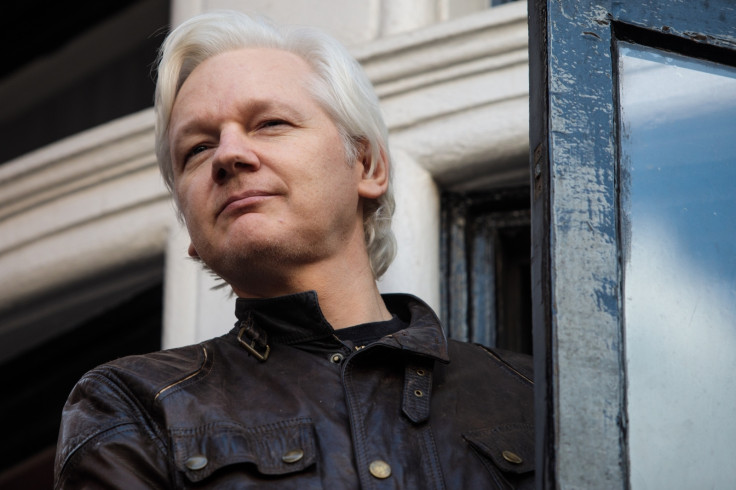'He feels he's above the law': Judge rejects Assange's latest attempt to have arrest warrant dropped
KEY POINTS
- WikiLeaks founder has latest appeal for UK arrest warrant to be dropped rejected.
- Judge says 46-year-old should have "courage to come to court" if arrested.
- WikiLeaks founder has been holed up inside Ecuadorian Embassy since 2012.
Julian Assange has lost his latest attempt to leave the Ecuadorian Embassy without fear of being detained after his legal bid to have his arrest warrant quashed was rejected.
Assange, who has been holed up in the embassy in Knightsbridge, London, since 2012, attempted to argue that his warrant from British Police for skipping bail has "lost its purpose and function" since Swedish authorities dropped the rape investigation against him last May.
Judge Emma Arbuthnot dismissed the appeal earlier this month after rejecting the argument as "absurd".
However, his lawyers continued to argue the case, believing it is no longer in the public intertest to prosecute Assange.
Mark Summers QC said his client had legitimate reason for seeking refuge in the embassy, including fears he would be extradited to the US to face espionage charges after publishing thousands of classified documents relating to wars in Iraq and Afghanistan on his WikiLeaks website.
Assange's team said it should be noted that the Crown Prosecution Service (CPS) advised Sweden against questioning him in London as far back as 2011 (which he eventually was in 2016), and Swedish prosecutors attempted to drop extradition proceedings against Assange as early as 2013.
Summers also argued that Assange co-operated with Swedish police while under investigation, that the UN describe his situation as "arbitrary, unreasonable and disproportionate", and that his six years inside the embassy could be classified a punishment in itself.
In the latest hearing, Arbuthnot dismissed the argument that Assange's time in the embassy should be classed as incarceration as he can leave "whenever he likes, have unlimited visitors unsupervised [and] can choose when he eats, sleeps and exercises. There is a distinction between living in Wandsworth prison and in the Embassy."
After rejecting all of Assange's arguments for the warrant to be dropped, the judge added: "He feels he is above the law. His failure to surrender has impacted the course of justice. He should have the courage to come to court."
Arbuthnot added: "Importantly, for a man who spends a great deal of time on his computer, he is free to use multimedia, whether his computer or a mobile telephone, in a way that prisoners are not allowed to do.
"I suspect if one were to ask one of the men incarcerated in Wandsworth Prison whether conditions in the Ecuadorian Embassy were akin to a remand in custody, the prisoner would dispute the assertion.
In her concluding remarks, Arbuthnot said: "He appears to consider himself above the normal rules of law and wants justice only if it goes in his favour.
"Defendants on bail up and down the country, and requested persons facing extradition, come to court to face the consequences of their own choices. He should have the courage to do so too."
Prior to the hearing, Jennifer Robinson, one of Assange's legal team, said: "Mr Assange remains ready to face British justice and to resolve any outstanding matters related to his seeking protection in the Ecuadorian embassy – but not at the risk of being forced to face American injustice for exercising the freedom to publish."
While the existence of a US extradition warrant has neither been confirmed nor denied, US attorney general Jeff Sessions previously described Assange's arrest as a "priority".























